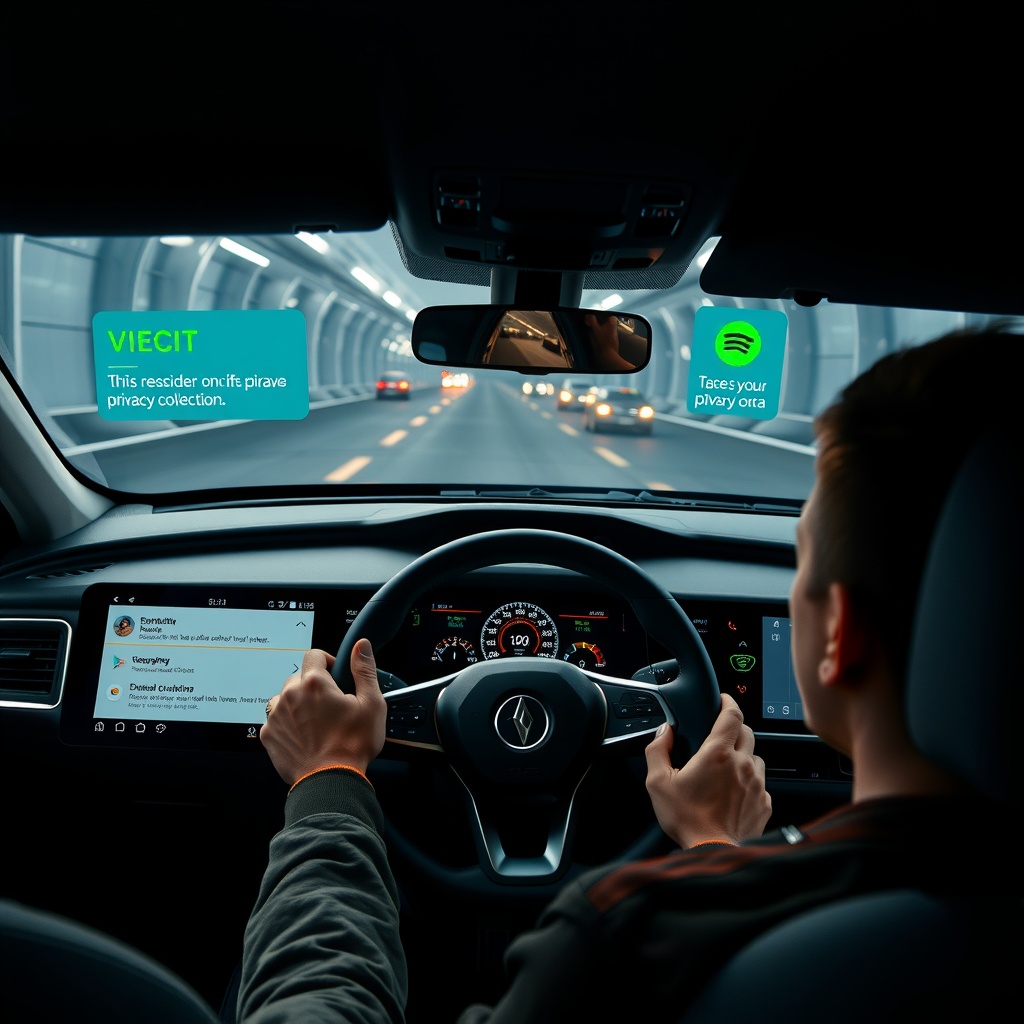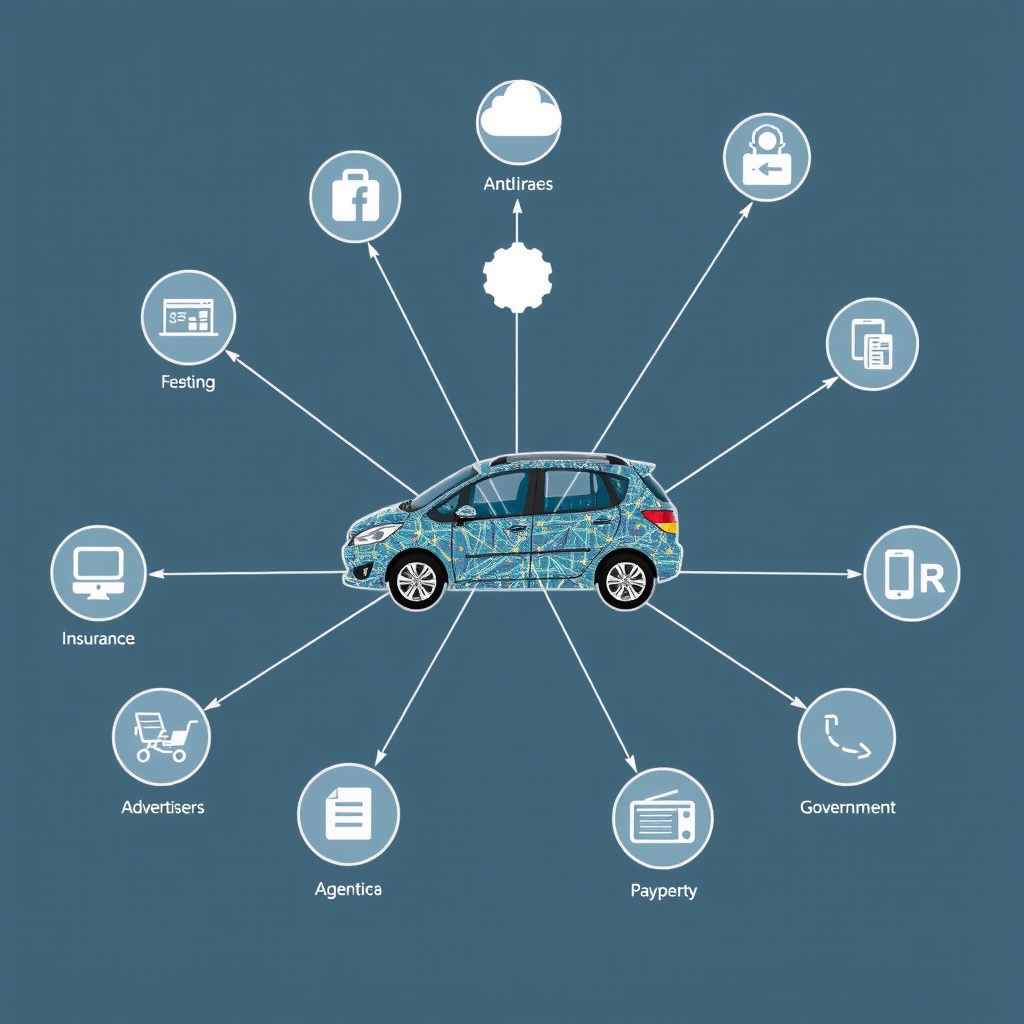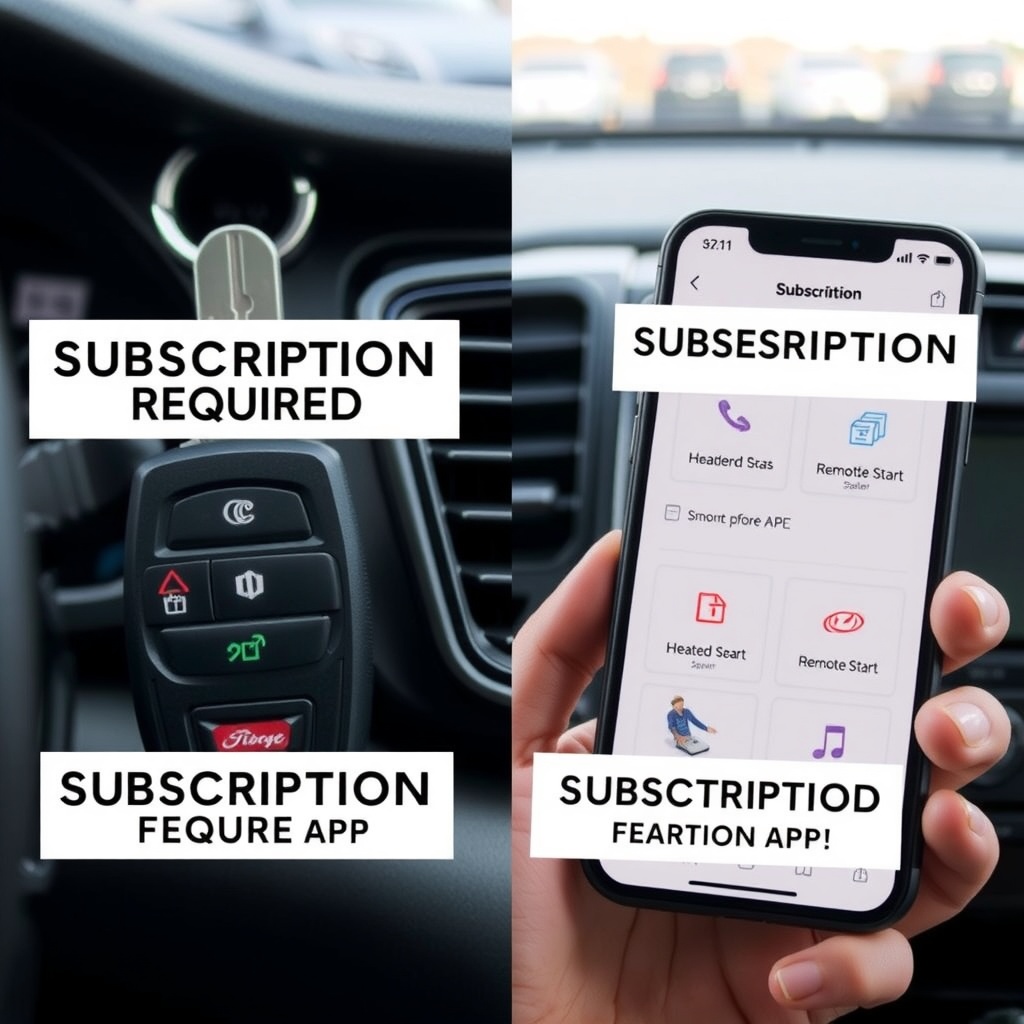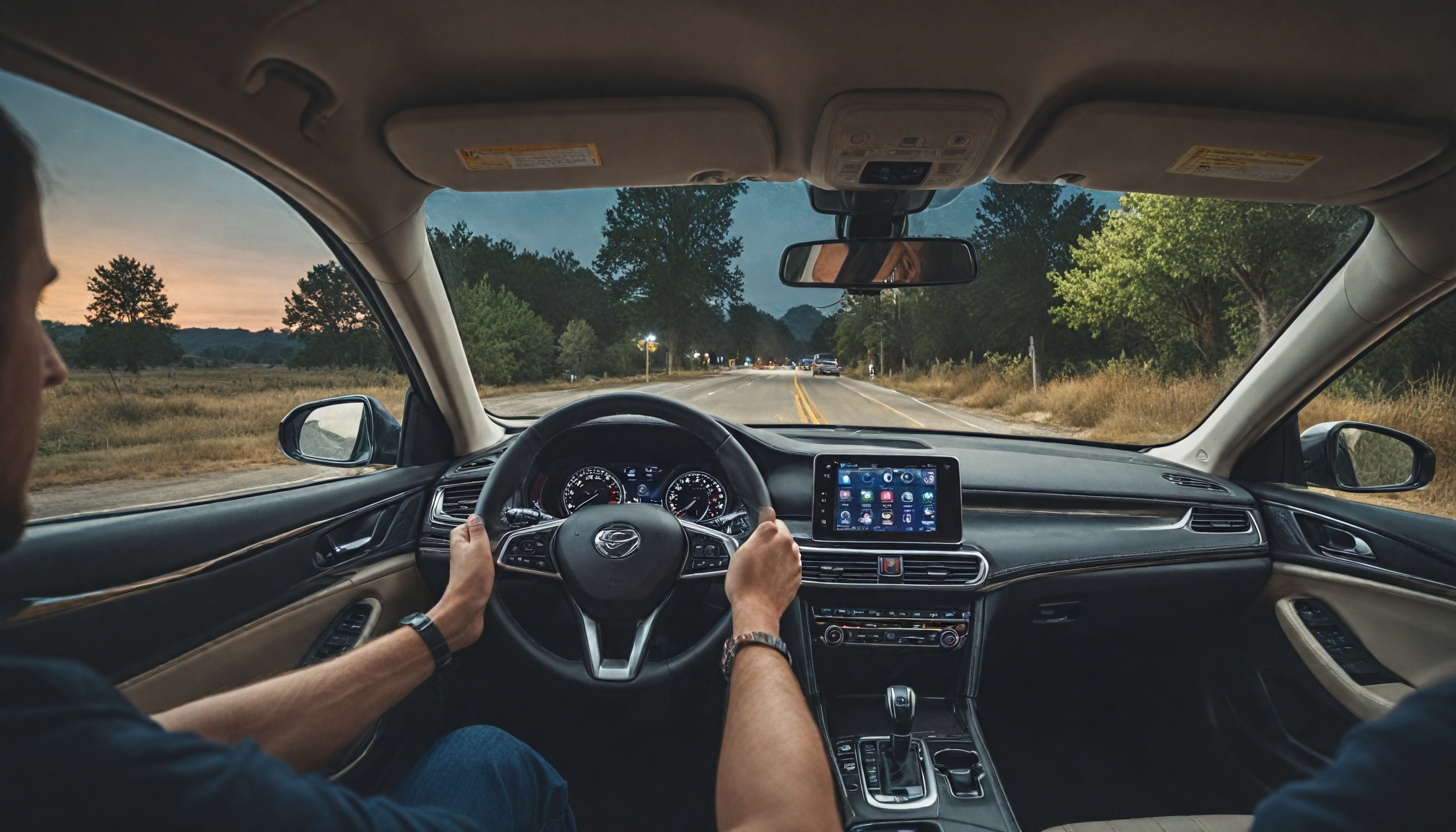
Modern cars collect excessive personal data, with 84% of brands sharing or selling information to third parties, making them worse privacy offenders than mental health apps.

Drivetech Partners
Modern vehicles have transformed from simple transportation into sophisticated data collection devices that track everything from your location to your conversations, all while charging subscription fees for features that were once standard. Mozilla's "Privacy Not Included" research reveals a disturbing reality: all 25 car brands studied collect excessive personal data, with 84% sharing or selling this information to third parties, making cars worse privacy offenders than mental health apps.
Key Takeaways
Modern connected vehicles collect unprecedented amounts of personal data, including driving habits, precise locations, biometric information, and voice recordings
Law enforcement can often access vehicle data without requiring a warrant due to outdated legal exceptions
Automakers are shifting to subscription-based revenue models for features that were once included with purchase
Connected cars face serious cybersecurity vulnerabilities that can be exploited by hackers
Consumers have limited control over who owns and profits from the data their vehicles generate

Modern Vehicles as Surveillance Machines: Privacy Crisis on Wheels
Your car is watching you. Modern vehicles have evolved into sophisticated surveillance platforms that gather massive amounts of personal information with every drive. These rolling data centers capture your precise locations, driving behaviors, in-car conversations, and even information from connected smartphones.

The scope of this surveillance is alarming. Mozilla's "Privacy Not Included" research found that all 25 car brands studied collect excessive personal data, with 84% freely sharing or selling this information to third parties. Even more concerning, modern cars rated worse for privacy than mental health apps, only 63% of which collect too much data.
This constant monitoring creates a privacy crisis that most drivers don't realize exists. Every time you start your vehicle, you're activating dozens of digital sensors and connections that track your movements and behaviors in ways that would have seemed like science fiction just a decade ago.
The Automotive Data Gold Rush: What Your Car Knows About You
Car manufacturers collect a startling range of personal and behavioral data. This includes precise GPS locations that track everywhere you go, driver behavior metrics (how fast you accelerate, how hard you brake, your typical speeds), biometric information like weight and voice patterns, and recordings from in-car voice assistants.

This information is gathered through various channels. Connected services like OnStar, dedicated car apps on your phone, and third-party integrations with services like Google Maps and Sirius XM all create opportunities for continuous data harvesting.
The automotive industry has quietly undergone a fundamental shift. Many carmakers now see their future not primarily as vehicle manufacturers but as data monetization companies. Your personal information has become a valuable commodity that can be packaged, shared, and sold to generate ongoing revenue long after you've purchased the vehicle.
Government and Law Enforcement Access: Your Car as a Witness Against You
Current legal frameworks in the United States allow law enforcement to access vehicle data without obtaining a warrant in many situations. This is possible due to outdated legal exceptions that haven't kept pace with automotive technology advancements.
Your car's data trail could potentially be used against you in ways the authors of the Fourth Amendment never imagined. Location histories, driving behavior, and even voice recordings might be accessed with minimal legal oversight.
Recognizing this constitutional gap, the bipartisan Warrantless Digital Car Search Act aims to require proper warrants for vehicle data searches. This legislation acknowledges that Fourth Amendment protections designed for physical searches must extend fully to digital vehicle data to protect citizens' privacy in the digital age.
The Subscription Economy: Paying for Features Your Car Already Has
A disturbing trend has emerged in recent years: automakers increasingly charge recurring subscription fees for features that were once included as standard with vehicle purchase. Heated seats, remote start capabilities, and even full battery range in electric vehicles are now being locked behind monthly payment walls.

This shift fundamentally changes what it means to "own" a vehicle. When you purchase a car with hardware already installed but pay ongoing fees to use that hardware, are you really the true owner of your vehicle?
The subscription model has also created new security risks. Frustrated consumers attempting to bypass these fees sometimes install unauthorized software or hardware modifications, which can create security vulnerabilities and invalidate warranties. These unauthorized modifications open additional entry points for potential cyberattacks.
Cybersecurity Vulnerabilities: When Your Smart Car Gets Hacked
Connected vehicles represent a new frontier for cybersecurity threats. With dozens of electronic control units and constant internet connectivity, modern cars present complex attack surfaces for hackers, ransomware, and other malicious actors.
The automotive industry has already witnessed concerning security incidents. The Mirai Botnet attack demonstrated how connected devices can be compromised and used in coordinated attacks, highlighting the vulnerability of internet-connected systems like those in modern vehicles.
Third-party software used to bypass subscription fees creates additional entry points for attackers. These unauthorized modifications often lack proper security testing and can provide backdoor access to critical vehicle systems. Hackers could potentially gain control over steering, braking, or acceleration in worst-case scenarios.
Data Ownership and Digital Rights: Who Really Controls Your Car?
Who actually owns the data collected by your vehicle? This fundamental question remains largely unresolved in the automotive industry. Is it you, the vehicle owner? The manufacturer? Or the third-party companies that process this information?
Most car buyers face a serious lack of transparency regarding what happens with their data. Privacy policies and terms of service for connected car features are typically buried in dense legal language that few consumers read or understand. These agreements often grant manufacturers broad rights to collect, use, and share personal driving data.
The concept of digital sovereignty—the idea that individuals should maintain control over their digital presence and data—has yet to be fully applied to vehicle ownership. As cars become more connected, the question of who controls the digital aspects of your vehicle becomes increasingly important.
The Economic Incentives Behind Automotive Surveillance
Automakers are rapidly pivoting their business models from one-time sales to recurring revenue streams based on data monetization and subscriptions. This fundamental shift is driven by financial pressures and the search for growth beyond traditional vehicle sales.
This transition creates an inherent conflict between consumer privacy and corporate profit motives. The more personal data a manufacturer can collect, the more valuable that data becomes for monetization through targeted marketing, personalized insurance pricing, and other revenue strategies.
The financial upside for manufacturers is significant. Data collected from vehicles can be used to create detailed consumer profiles, enabling precision-targeted advertising and new service offerings. For many automakers, this data-driven business model represents the future of automotive profitability.
Protecting Yourself: Consumer Strategies and Policy Solutions
Despite these challenges, you can take practical steps to limit data collection and protect your privacy in connected vehicles. Here are some strategies to consider:
Review and restrict app permissions for car-connected applications
Opt out of data sharing programs when possible
Use offline navigation options instead of connected services
Disable unnecessary connectivity features
Research a vehicle's privacy practices before purchase
On a broader scale, stronger privacy regulations specifically designed for the automotive industry are needed. The European Union's GDPR provides some model protections, but more comprehensive legislation is required in many regions.
Right-to-repair and data access legislation is also crucial. These policies would give consumers greater control over their vehicle data and allow them to choose who can access and service their vehicles without being locked into manufacturer ecosystems.
The future of automotive privacy will depend on both consumer demand for better protections and regulatory frameworks that acknowledge vehicles as the sensitive data platforms they have become. Until then, drivers should approach connected car features with the same caution they would any other technology that collects personal information.
Sources
semiengineering.com - Increased Automotive Data Use Raises Privacy, Security Concerns
foundation.mozilla.org - It's Official: Cars Are the Worst Product Category We Have Ever Reviewed for Privacy
commerce.gov - Citing National Security Concerns, Biden-Harris Administration Announces
papers.ssrn.com - Driving Blind: The Unexamined Privacy Risks of Connected Cars
wyden.senate.gov - Wyden, Lummis, Khanna and Meijer Introduce Bipartisan Bill to End Warrantless Searches of Automobile Data
upstream.auto - Navigating the Risks of Automotive Subscription Revenue Streams






